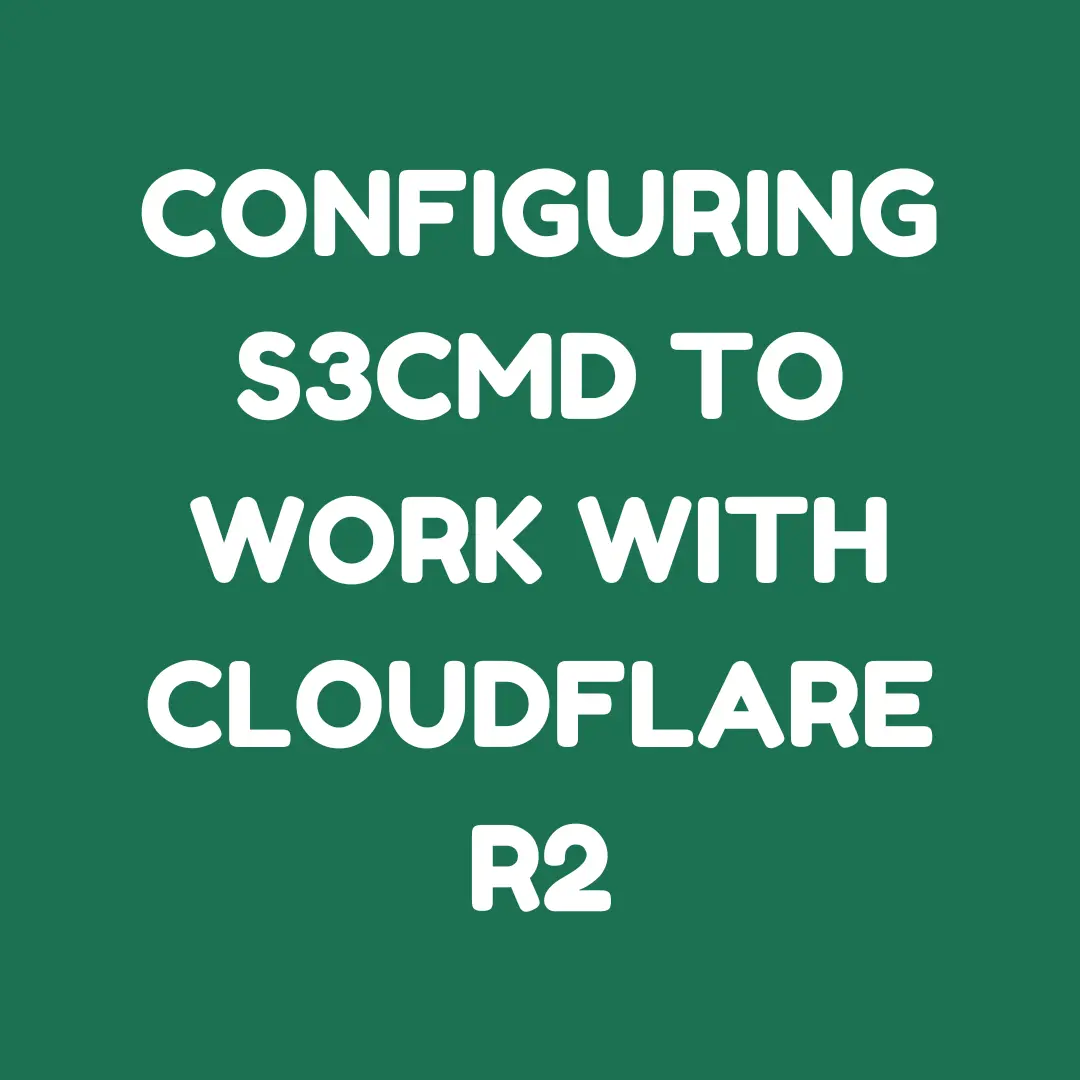Configuring s3cmd to Work with Cloudflare R2

Cloudflare R2 is a cost-effective object storage solution. s3cmd is a powerful command-line tool for managing Amazon S3-compatible cloud storage. This guide will show you how to configure s3cmd to work with Cloudflare R2.
Prerequisites
Before you start, make sure you have:
- An active Cloudflare R2 account.
- Python installed on your system.
- Basic knowledge of the command line.
Step 1: Install s3cmd
First, you need to install s3cmd. Use pip, the Python package installer, to install it:
pip install s3cmd
Alternatively, you can install s3cmd using your package manager. For example, on Ubuntu:
sudo apt-get install s3cmd
Step 2: Get Cloudflare R2 Credentials
To connect s3cmd to Cloudflare R2, you need your R2 credentials. Log in to your Cloudflare dashboard and navigate to the section R2 -> Manage R2 API Tokens -> Create API Token to create token and get your Access Key ID and Secret Access Key.

Step 3: Configure s3cmd
Now, configure s3cmd to use your Cloudflare R2 credentials. Run the following command to create a s3cmd configuration file:
sudo nano ~/.s3cfg
You need to add the following lines and replace
[default]
access_key = <your-access-key-id>
secret_key = <your-secret-access-key>
bucket_location = auto
host_base = <account-id>.r2.cloudflarestorage.com
host_bucket = <account-id>.r2.cloudflarestorage.com
enable_multipart = False
Step 4: Test the Configuration
To verify that s3cmd is configured correctly, list your Cloudflare R2 bucket files using the following command:
s3cmd ls s3://<your-bucket-name>
You should see a list of your files in R2 bucket if the configuration is correct.
Common s3cmd Commands
Here are some common s3cmd commands to manage your Cloudflare R2 storage:
Create a Bucket:
s3cmd mb s3://<your-bucket-name>Upload a File:
s3cmd put local-file s3://<your-bucket-name>Download a File:
s3cmd get s3://<your-bucket-name>/remote-file local-fileDelete a File:
s3cmd del s3://<your-bucket-name>/remote-file
Enhancing Data Distribution with Akmatori
For advanced data distribution and load balancing, consider Akmatori. Akmatori is a globally distributed TCP/UDP load balancer designed for high performance. It can handle complex network setups and heavy traffic, ensuring your services remain available and responsive.
Conclusion
Configuring s3cmd to work with Cloudflare R2 is straightforward. With this setup, you can efficiently manage your cloud storage. For enhanced data distribution and load balancing, try Akmatori. It offers robust solutions for handling global traffic and ensuring service availability.
Thank you for reading. We hope this guide helps you configure s3cmd with Cloudflare R2 effectively. If you have any questions, feel free to ask. Happy managing!
